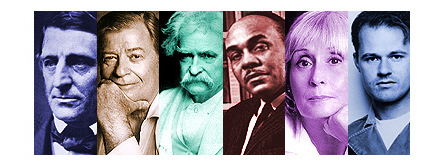When Cheryl Truman of the Lexington Herald-Leader published her ten all-time favorite books and invited readers to submit their lists, it got me contemplating my bookshelf. It makes for tough culling, like picking your favorite foods or motion pictures, but it was an interesting activity for me, and—surprise—she included my choices in the ARTS & LIFE section on June 24th. (The lists were originally available at Kentucky.com for a time, but now one has to pay to see the archives.)
Unfortunately, there always seems to be a sour note in these things, and somebody took it upon himself to cite the wrong translation of the I Ching. It may not seem like a big deal, but I’ve never heard of Brian Browne Walker, and I’m not at all convinced his name deserves to appear in this context. I made plain to Ms Truman that the Wilhelm-Baynes translation is my preference. I’ve never seen another to compare, and it’s a big deal to me, because there have been far too many mediocre, commercially oriented versions of this classic of Chinese thought. Thank Goodness we have English as our native tongue, so we don’t have to face sorting out the various translations of Shakespeare or Emerson. Think about it. That’s why correctly making the Wilhelm-Baynes distinction is a BIG deal. You might ask yourself, is Shakespeare worth reading, except in English? Well, sure—that would be like saying one must learn Greek to read The Odyssey. One doesn’t, of course, because there was a Robert Fitzgerald. That’s why getting the Wilhelm-Baynes thing right is a FREAKIN’ HUGE deal!
The Creative Habit
Twyla Tharp’s thoughtful guide to artistic traction is the most practical book on creativity that I’ve yet encountered. The acclaimed choreographer reaches beyond her own craft to provide powerful keys to any dedicated artist.
Harlan Hubbard: Life and Work
Wendell Berry’s biography of the legendary individualist reveals much about himself, and therefore it offers penetrating insights for two of Kentucky’s most extraordinary artistic pioneers. This “double treasure” has made it one of my favorite companions for contemplative moments.
Stand Before Your God
Although Paul Watkins is clearly one of the most gifted novelists of his generation, my favorite among his books is this memoir about coming of age in English boarding schools, a pearl of introspection in today’s miasma of literary narcissism.
Drawing Life: Surviving the Unabomber
I’ll admit that, for various reasons, I’ve wept at the end of other books, but relinquishing my connection to David Gelernter’s mind and heart was an intense, unprecedented experience.
Shogun
I understood more about Islam after reading Whirlwind than from any nonfiction book, but his skill as a storyteller is what continues to set James Clavell apart for me. His “Asian Saga” is the benchmark achievement by which any series of historical novels can be compared, and this massive narrative of 17th-century Japan is his masterpiece.
Huckleberry Finn
The legacy of controversy shrivels when laid against its core of creative genius. I remain astonished each time I realize that no American had ever written fiction so modern. But even if someone had, I think Mark Twain’s towering novel would still have the power to stagger my imagination.
Invisible Man
More than a riveting story and keen take on American society, I think Ralph Ellison’s masterwork is perhaps the most prophetic piece of fiction in the past sixty years.
The Conduct of Life
For any American, this collection of essays by Ralph Waldo Emerson is a rich vein of intellectual ore that’s impossible to exhaust.
I Ching or Book of Changes
Who can deny 3,000 years of Chinese wisdom? It may well be the most profound distillation of human perception that exists. The Wilhelm-Baynes translation is my favorite, and its foreword by Carl Jung is the best essay about the Book of Changes I’ve ever read.
The Holy Bible
Beyond any doubt, it enshrines the greatest and most meaningful stories in world literature.
• • • • • •
March 6, 2017 — I am adding q note today after reading this page again. It would be difficult to take Shogun out of my top ten, but I no longer would cite James Clavell as the gold standard for historical fiction. Patrick O’Brian has recently eclipse his status in my regard, and that is saying a lot.
